The Six Nations commencement in Cardiff brought rugby revelry to the city centre but many fans still felt the weight of a Brexit finalisation.
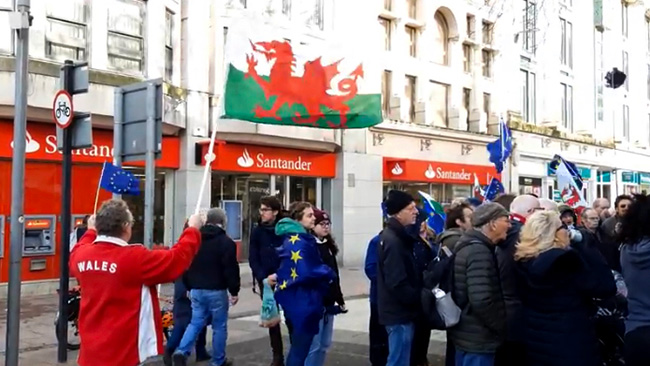
On Saturday morning, Cardiff woke up earlier than usual.
It donned its rugby shirt, applied its face paint generously. Its pubs flipped signs from closed to open and began filling, downing and refilling its pints accordingly. Outside, Italian flags rippled around a cadre of blue-jumpered shoulders. Sprite yellow daffodil-heads sprouted into a happily fattening crowd. Among rattling vendors deluged with scarves, flower crowns and scarlet bucket hats, fans roamed from Queen Street to Principality Stadium painting the city in red, green, white and blue while chanting broken snippets of their anthems like two choirs in battle.
On Saturday morning, one feeling saturated the Cardiff air: The Six Nations was back.
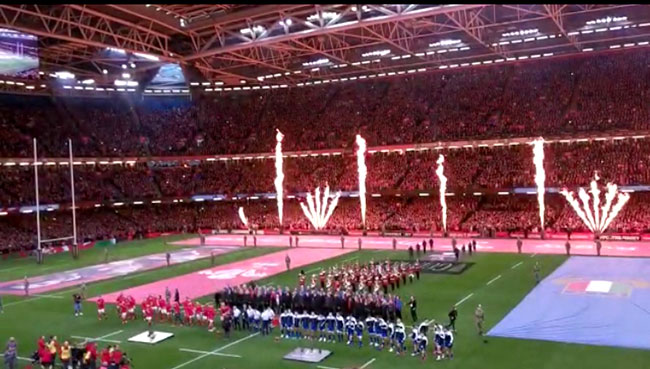
But as Welsh and Italian flags flapped buoyantly in the Cardiff breeze, one flag rippled amongst them that hasn’t had as prominent a place on the pitch during past matches.
In fact, it’s not a six nation at all.
“I’m here for the rugby,” said Wales fan Kerry Thomas, “but I’m a pro-European supporter today.”
Gathered around the Aneurin Bevan statue on Queen Street, a pro-European Union, flag-waving soapbox rally filled the air with a very different melody than the ones echoing from Womanby Street. Organised by the ground roots pro-EU community Cardiff for Europe, the protesters shared two simple messages: We will always be European. This is not the end.
“We’re going to show some support here now,” Thomas said. “We’re welcoming our Italian friends more warmly than ever.”
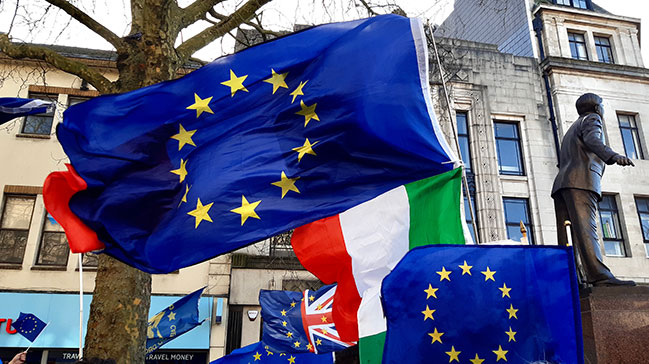
It was nearly meme-esque: ‘When you have work at 5 but the game at 7.’
But as some fans awoke anxiously wondering whether Wales would clinch a home triumph or if Italy might pull a rabbit from its hat, fans like Susanne Koenig and her daughter Lillith woke still submerged in the previous night’s events. Thus the red rugby shirts would have to wait.
“It’s important for all of the young people,” says Koenig. “Without the European Union, they have no future, no jobs, no international friendships. A lot of international European Union members like me will leave this country and take our children with us.”
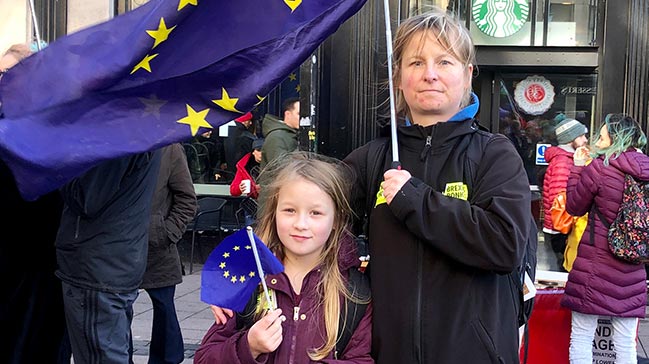
While sporting organisations rarely involve themselves vis-à-vis politics, the start of the Six Nations has seen fans embrace a friendship between nations that surpasses bureaucratic and geographical borders, the very one protesters like Koenig fear is in jeopardy.
Which is not to say a rugby game day contends with that of the EU Parliament in terms of political venue. But while the Six Nations has no doubt transpired over the last three and a half years of Brexit suspense, it has yet to play amidst Brexit success, let alone on the very morning following the UK’s official departure.
Credit: Caitlin Powell
Since 2000, the annual brawl between Ireland, England, Wales, Italy, France, and Scotland has evolved into cross-country pilgrimages for fans to hoist their flags and shout for their respective teams as loudly as they humanly can, usually louder. The world’s oldest international rugby tournament is an enshrined fixture in any sport enthusiast’s calendar.
From 1st February to 14th March, weekends are marked off, sick-days leveraged and tickets bought and boasted well in advance. The wearable merch is properly laid out — washed or unwashed depending on the last time that jersey saw a lucky game day and just how much faith someone puts in superstition.
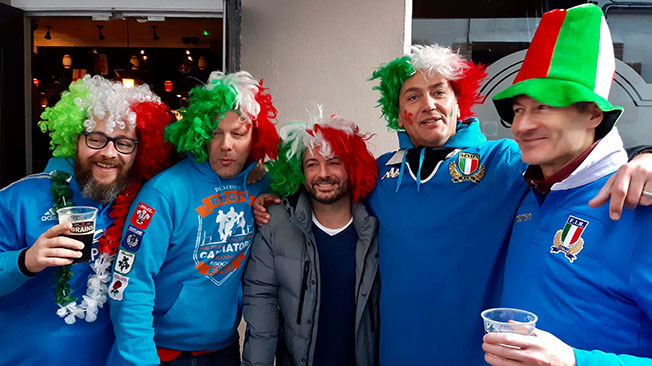
This year’s tournament tails a World Cup dominated by a swathe of quick-footed southern hemisphere teams, giving the Six Nations teams a little more to prove to their fans: England as a reasserted worthy finalist that can stave off a World Cup repeat; Ireland, France and Wales’s new head coaches to nick a spot as indelible contenders.
Put simply, the pitch stakes weigh a bit heavier in this year’s Six Nations realm.
So on a day when ancient rivalries inevitably flare and fans parade city centres like their nations’ personal mascots, it can be hard to believe that the street banter, pint rounds and erratic hugs from strangers inadvertently liken to anything more than exactly what they are.
Those peering in from outside the insular rugby ring witness what could be the wardrobe department from a sports-pantomime, from grown men in Italian-striped Einstein wigs, to mock-gladiators proudly sporting red and white kilts. To the bemused bystander, the month-and-a-half long rugby slog is more like a 21st century bacchanalia.
Credit: Caitlin Powell
But to others, the Six Nations is much more than mornings and afternoons in crammed pubs staving off skittish angst as their chosen teams of 15 wrestle across goal lines in hopes of heaving a very large trophy above their heads.
“Rugby is for the soul,” as one Italian-striped Einstein explained. The tournament is rooted in a cross-border camaraderie, in raising a glass to the stranger beside you dressed in opposing colours and very flagrantly cheering for not your team.
And just like their rugby comrades flooding the narrow alley of The Old Arcade and pouring song from its front doors, the Queen Street rally was not one of enmity or spite, but one of companionship.
It’s why this year Louise Horton sells crowns laced with dovetailing red and blue petals, or why a proud Welsh man holds a beer in one hand, a Wales flag in the other and calls himself European.
So as the Six Nations continues in its month-long splendour, a new team might continue to finesse its way through the crowd, flapping in the wind amongst its Welsh and Italian competitors like the old friend waving from the opposite side of the pitch.
